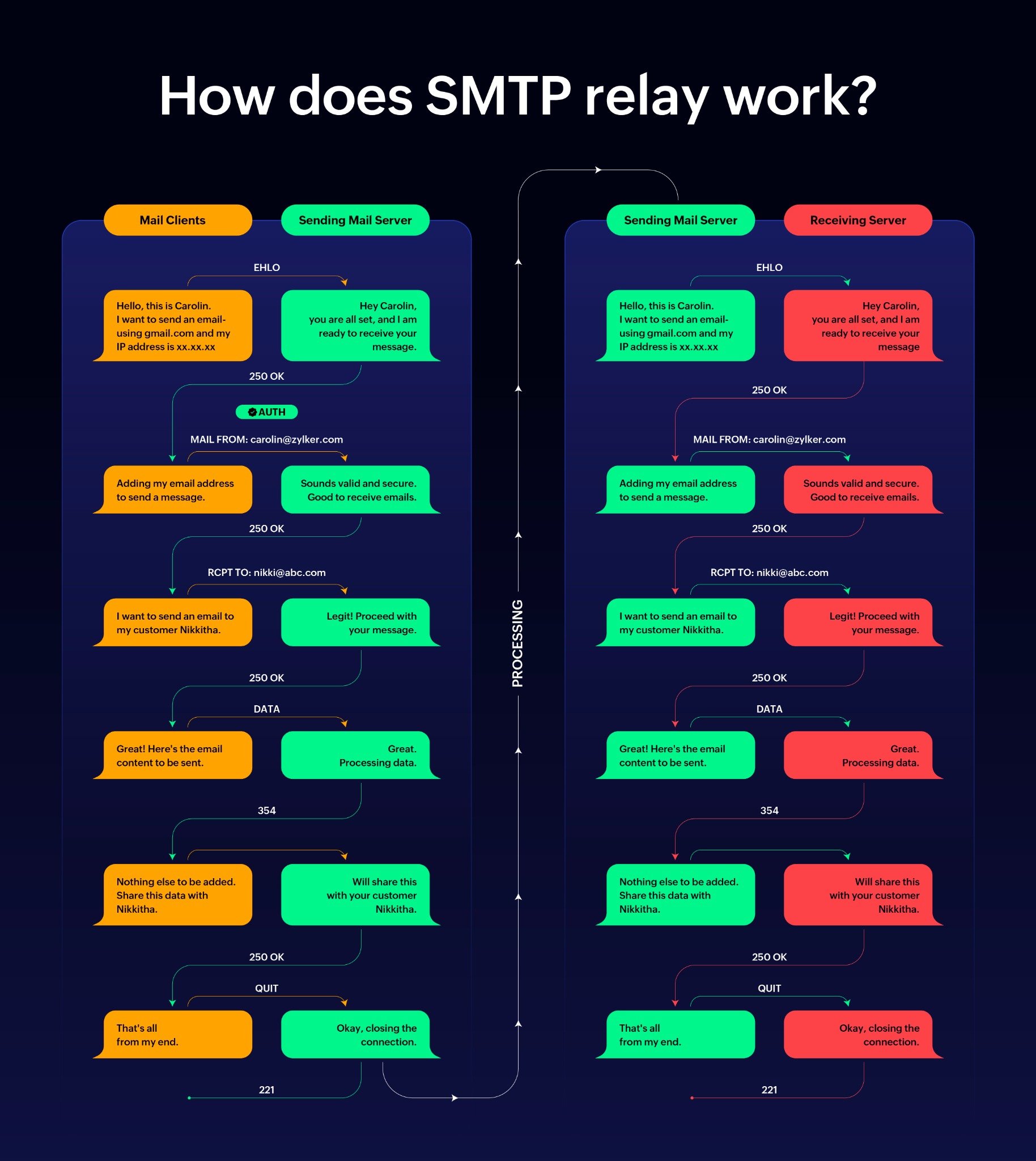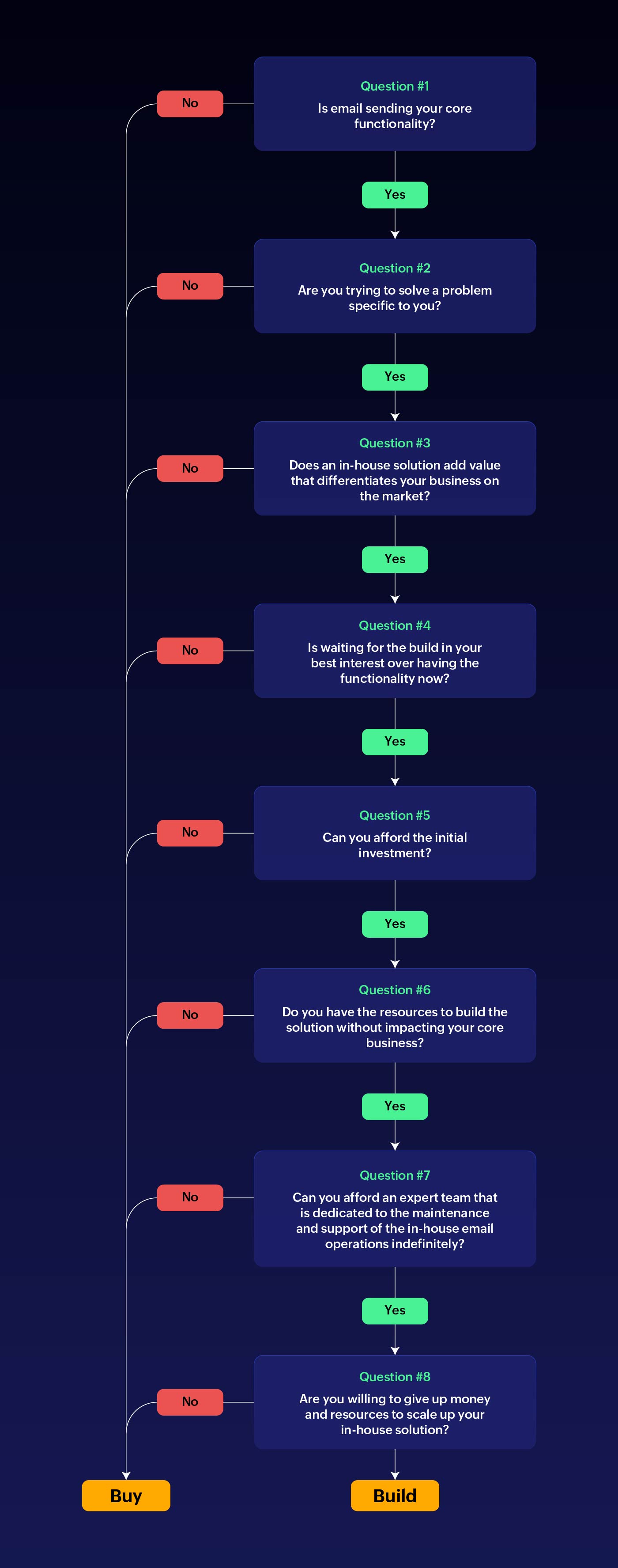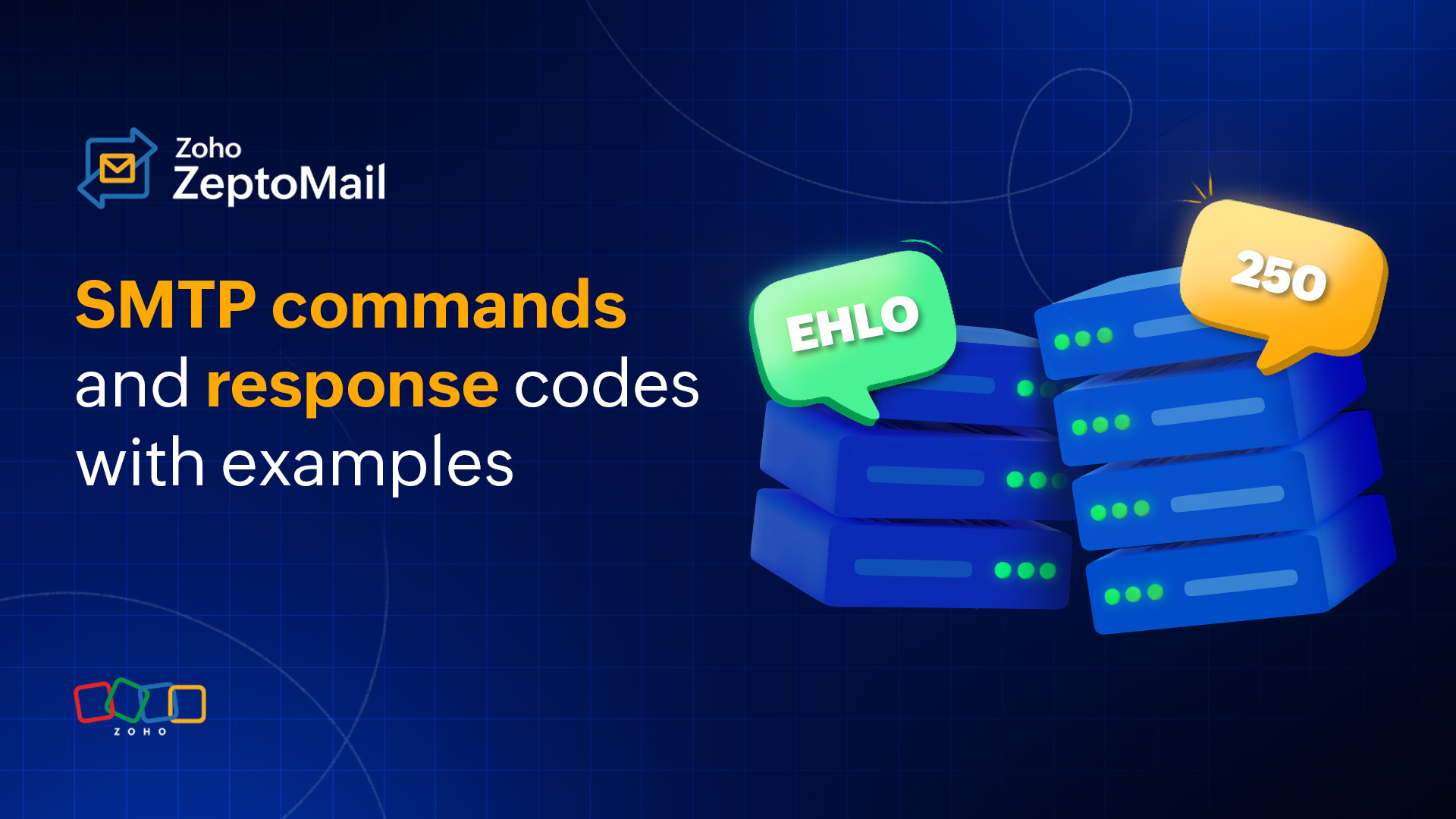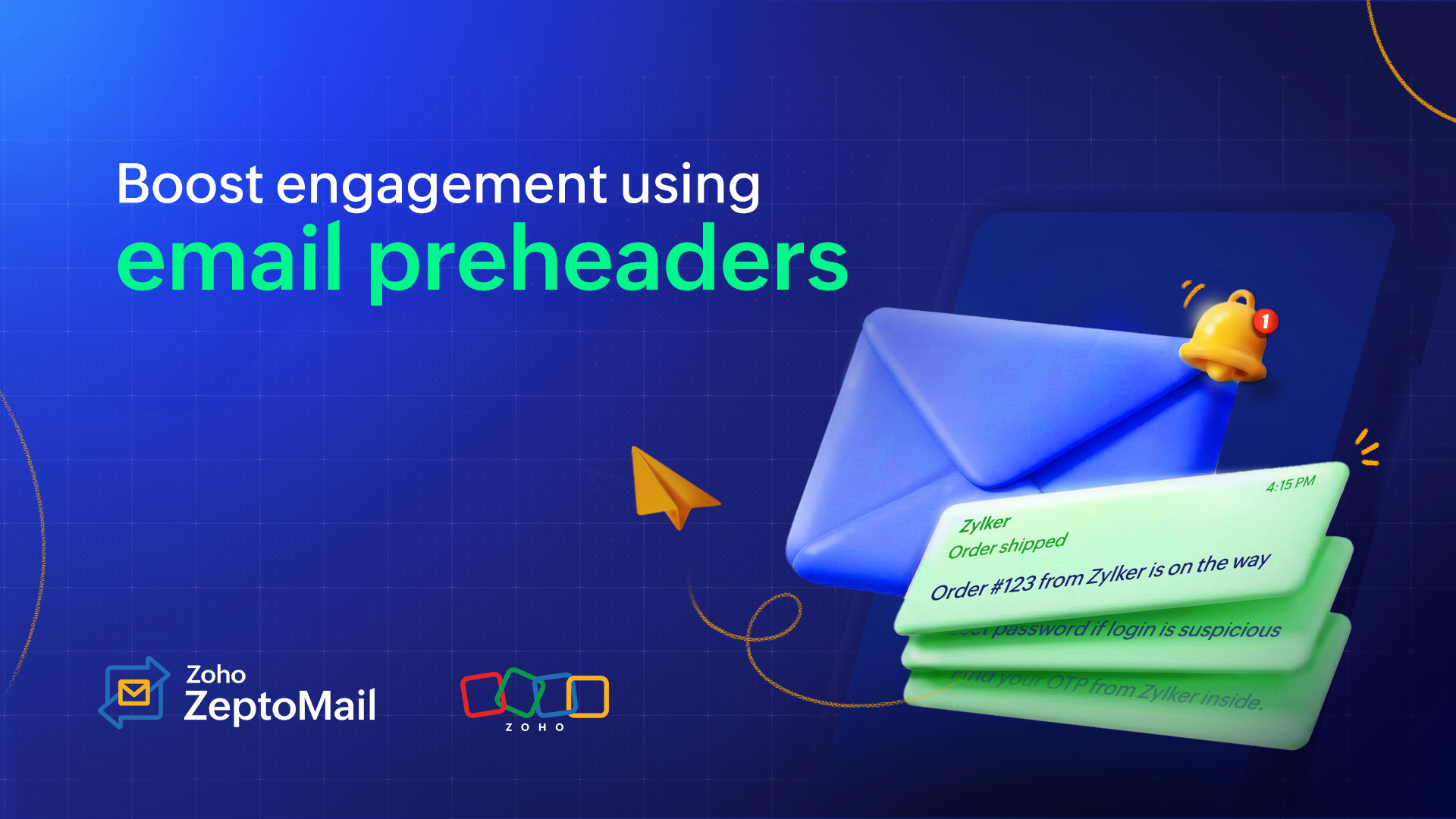- HOME
- Email sending
- Should you build or buy your transactional email service?
Should you build or buy your transactional email service?
- Published : May 29, 2025
- Last Updated : November 17, 2025
- 175 Views
- 8 Min Read
Emails can be of many types, but when it comes to business, there are two that matter most—marketing emails and transactional emails.
Most businesses don't need a lot of convincing when it comes to getting them to focus on marketing emails. The equation is simple: More marketing emails = more customers = more revenue. But when it comes to transactional emails, businesses often see them as being purely operational. They don't realize the untapped potential that they're failing to capitalize on.
Requested—and expected by users—transactional emails carry important information to users at crucial touchpoints throughout the customer journey. These are operation-critical emails, so when their delivery isn't handled well, it can create a negative impact on your brand experience and customer trust.
Any email delivery is complex behind the screens, and for transactional emails, there are added layers of difficulty because they're time-sensitive and automated. To set the context, here's a quick look at the pathway that an email will take before being delivered.

That's why it's necessary for every business to depend on a transactional email service to deliver these important emails.
Should you build or buy your transactional email setup?
Every business faces this question when they're looking for software. Do you buy or do you build? While choosing the right off-the-shelf solution might seem like a daunting process, undertaking a full build could snowball into a long list of tasks that require significant time and resources.
So there's no one right answer to this question. It depends on multiple factors, and the right choice will vary for each business. How much weightage each factor has on your decision making is fully dependent on your business's goals and bandwidth. To make it easier, we'll explore some key considerations as well as the pros and cons of each choice in this article.
Must-haves for a transactional email service
Not all email platforms are built equally. This means that whether you buy or build, the features depend on your requirements. But there are some expectations that are not optional. Any transactional email service you pick needs to check some critical boxes in order to achieve the basic goal of good delivery.
Reliable inbox placement
Prompt delivery of transactional emails is important for customer trust, good customer experience, and, ultimately, customer retention. Good inbox placement means that your emails are delivered to the intended recipient's inbox instead of landing in their spam folder or being rejected entirely. This is the basic requirement of any transactional email service you pick for your business.
This is often achieved through the service's multiple layers of features and protocols. This includes constant monitoring of email service provider requirements, establishing a feedback loop, ensuring authentication of the domains and IPs used, other expert tools like IP warm-up, and more.
Instant delivery
Delivery without delays is a non-negotiable requirement of a transactional email service. It may not be the case for other email services, but because the user triggers transactional emails, they expect to receive them in their inbox instantaneously, and any delay will simply not do. This becomes even more crucial for some industries like fintech and some email types like an OTP email.
Scalability
Transactional emails are generally high-volume emails. Even if that's not the case for you right now, as your business grows, the number of engagements on your application or website will grow with it. Each engagement, more often than not, generates a transactional email. Any transactional email service you pick or build should be able to handle sending increasing volumes of email. This means being able to accommodate an increase in servers, software bandwidth, features, and more.
Email security
Transactional emails often carry confidential and private information. Your transactional email service should always be able to protect your customer's data. This could include encryption, email protocols, data center securities, and more. These measures have to be in layers and should always come with a fallback measure.
Compliance with regulations
Depending on where you're running your business and the industry you belong to, your business has to comply with a set of industry- or government-mandated regulations. Whether you build or buy, your transactional email service has to comply with these regulations. Sometimes they're regarding data privacy, and sometimes they mandate certain features like logs and activity tracking.
Performance analytics
Transactional emails are more operational than marketing emails and are often mistaken for not requiring analytics. But analytics on how these emails perform and how they're accessed will give you insights that will help you improve their deliverability. The transactional email service of your choice should provide your business with enough analytics like delivery status, opens, and clicks to help you boost your deliverability.
Troubleshooting tools
No service can ensure 100% delivery. There's always some reason why some of your emails are left undelivered. While this percentage is ideally small, they cannot be ignored. Any good transactional email service should give you enough information about the delivery and the tools to troubleshoot the delivery issue so you can take corrective measures for the future.
Building your own in-house infrastructure
When a business faces a requirement that could be integral to its operation, it's quite normal to evaluate if it's better done in-house. To help with this evaluation, let's see how building your own in-house infrastructure for transactional email sending can be beneficial.
Complete access and control
This is the deciding factor for any business choosing to build their own software. With an in-house solution, you get complete control over the software. Whether it's maintenance, support, development, or updates, you'll have full and close access to the processes.
Customization
One shoe doesn't fit all. Sometimes, you may want features in the email service that you don't find in the ones available on the market. Because an in-house solution is built by your team specifically for your team, it can be customized to fit like a glove.
Data privacy
To use a transactional email service, you'll be required to sync your customer data to send emails from the platform. When the solution is built in-house, the data doesn't have to be synced with a third-party platform.
Eliminate vendor dependency
With an in-house email sending solution, you'll be able to eliminate the need to depend on a third-party vendor.
Buying a third-party transactional email service
With operation-critical aspects of a business like transactional email sending, there are bound to be a hoard of off-the-shelf solutions available. There are multiple reputable transactional email sending services available on the market, but let's see how integrating with these will be beneficial to your business.
Expertise
Most of the email services are built by experts who have had years of experience in the specific field. With building the email service being their primary business operation, all of their time, resources, and expertise is spent on building a good email platform. By integrating with these platforms, you get the fruit of the expertise without having to spend the time or resource. You can also rely on them for continued support to navigate and use the platform.
Faster go-to-market timeline
With a ready-to-use email service, you can significantly fast-track your launch timeline. Instead of spending time building an email service that's not your primary business goal, you can focus on your business and simply integrate with a service built meticulously over the years and get to your business launch quicker.
Low cost of ownership
While the thought of being tied to a third-party provider might seem constrictive, it comes at a much lesser cost of ownership. Buying a solution allows you to eliminate the high initial investment cost of building your own physical and virtual email infrastructure. It also cuts down on the recurring maintenance cost you will incur in an in-house solution.
No maintenance efforts
Building the software doesn't just end with the initial setup. You'll be required to spend substantial time, money, and resources on maintaining the infrastructure. The uptime of your email solution will depend on this maintenance. By buying a plug-and-play email solution, you'll be helping yourself out of significant maintenance efforts. You can leave maintenance efforts like regular updates, bug fixes, and changes to accommodate ISP requirement modification to the experts, so you can focus on the primary business you serve.
Scalability
No matter what software you use for your business, it should be able to scale up along with your business. As your business grows, your website or application will see more interaction. This means more transactional emails.
When you buy a transactional email service, you scale up your email sending without having to worry about the efforts involved. You can leave the scaling up efforts to the provider and focus on making the most of your growing business. This applies both to increasing volumes and expanding to more communication channels.
Vendor fallback
Transactional emails are operation-critical. Failure to deliver these emails can tarnish your brand reputation and trust among customers. If you're buying your email service, you can ensure that there will be no disruption in delivery by employing back up vendors. If one vendor fails, you can easily switch to the next on standby. This vendor fallback mechanism isn't possible if your email service is in-house.
Compliance and regulation
Depending on where your business is hosted and what industry you belong to, compliance with regulations is critical. Any good off-the-shelf email solution already caters to these regulations. If you operate across borders and industries, it saves you the hassle of having to ensure that you comply with different sets of regulations.
Feature-rich platform
Building a bare-bones email solution may seem like a fast solution, but it's not as simple as that. To ensure that your transactional email sending is smooth, your email solution needs to be feature-rich with critical functions like in-depth analytics, feedback loop management, integrations, IP warm-up, email authentications, and more. Most email services on the market already come with these features, making it easy for you to enjoy the benefits.
Questions to ask when evaluating a transactional email service

The bottom line: Buying trumps building
While there's no one universally right answer, for most businesses, buying is the better choice. The long list of advantages proves that the benefits of buying a good email solution outweigh the advantages of building an in-house solution. Even if there's an aspect of building that's more attractive to you, you can simply achieve it by finding the right email service for your business. On the other hand, achieving the benefits of a third-party email service with an in-house build would require significant money and effort that you can use to focus on your core business.
Zoho ZeptoMail is an email service built on decades of email hosting experience with an exclusive focus on transactional email sending. With a simple integration using SMTP or API, you can connect your website/application with our platform to send out important transactional emails. All of our time, efforts, and resources are focused on ensuring the guaranteed, reliable, and fast delivery of these operation-critical emails.

